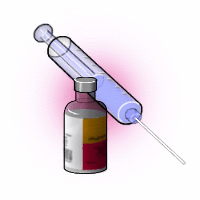I Couldn't Care Less: Warning Signs
Created | Updated Sep 23, 2012

I couldn’t care less: Warning Signs
Recently I trapped a nerve in my right arm. Apparently it’s C6, for anyone who might be interested. It has moments of being quite painful, but I felt quite happy to leave it a couple of weeks to go away on its own before I consulted my doctor. One of the solutions I am currently employing is an arm support. It looks like this. The most immediately notable effect of this (apart from the pain in my arm easing) was that everyone asked me what was wrong.
Now my wife has a permanent health condition. And partial sight. And depression. And childhood abuse trauma. But she doesn’t benefit from wearing a bandage for any of these things so she doesn’t tend to get people asking her what’s wrong. She is in pain pretty much constantly, so she could reasonably lay claim to ALWAYS being asked how she is by more or less everyone. Don’t do that, if you happen to run in to her, she finds it annoying to be constantly reminded of how much pain she’s in, but you take my point, I hope. Because her problems are not clearly labelled, people are unaware of them. This means that they fail to take them into account in all sorts of ways. For her partial sightedness my wife has a symbol cane, which is not of much practical use but is supposed to alert anyone alert enough to the fact that she is partially sighted. They have no idea of her pain levels, however, or that she is tired, or that she is walking as fast as she can, thanks. They can’t see that if their stupid child carries on running around the supermarket as if it was a playground and they bash into my wife (who can’t see them) she will either be quite badly hurt or, as likely as not, knocked over and very badly hurt. They might, if they could see this, realise that if they don’t stop their little brat now I am likely to borrow my wife’s cane and do the job for them. Hypothetically.
Disabled people can be fragile and damage easily if they aren’t treated with the care they require. And since people can be intrinsically quite careless they do need to be told. But the attention my right arm got made me think something else. A recent survey in the UK conducted by various carers’ organisations found that a large proportion of carers said that their health was affected by their caring role. Personally I find that I am often that bit more tired, stressed, anxious, irritable and sometimes even depressed than I might otherwise be. Much of the deterioration I have begun to recognise in myself is invisible. I got loads of attention for the mild pain in my arm, but nobody notices the times when I would really like to curl up in a quiet corner somewhere, rocking backwards and forwards and humming to myself.
The trouble is that getting over this communication barrier isn’t easy. Most disabled people don’t like being disabled. I have noticed that a lot of them are, to be brutal, too damn proud for their own good. They push themselves so hard in an attempt to prove to themselves that they are as capable as anyone else that they only serve to underline the fact that, like it or not, they aren’t. They certainly don’t want to wear sandwich boards proclaiming their frailties to the world. And it is no use anyone wearing a T-shirt saying ‘I feel like sh*t today’ because people would just look on the back of the garment for the punchline. No, there is only one solution, but for the British, it is a drastic one.
It is generally culturally accepted in this country that if someone asks you how you are you must tell them that you are fine. When explaining my arm support I always made a great point of explaining how serious it wasn’t. Only under very serious circumstances are you allowed to tell someone how you actually are. So here is my new, two part proposal: Part 1: if someone asks you how you are – tell them. Part 2: if you aren’t prepared to hear how bad someone actually is – don’t ask.
Can we give it a go?
Oh, and before I forget, please make the trip, if you feel like it, to Carers of H2G2
Articles by benjaminpmoore Archive
